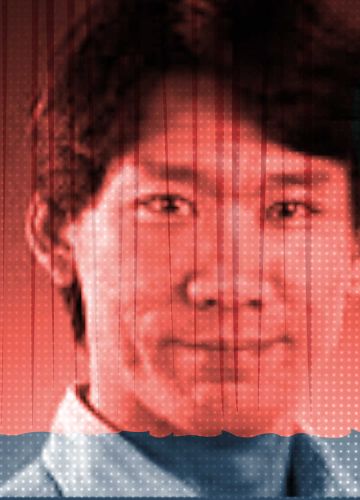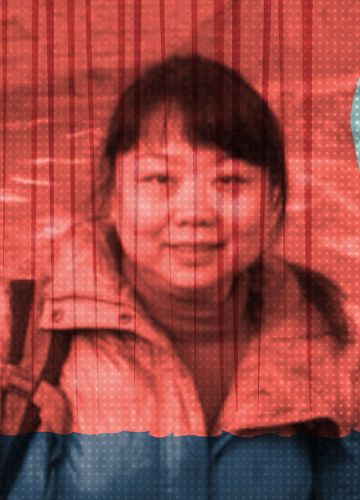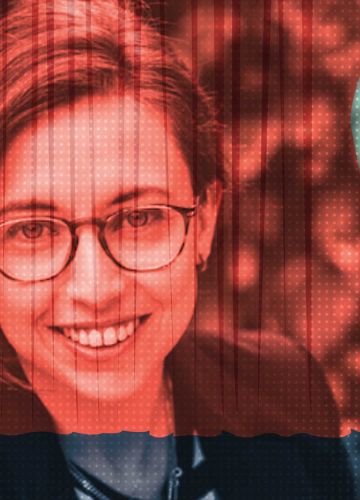Reaching China’s Gen Z Media Consumers

Fang Kecheng

Lu Hui
A Game Publisher Becomes an Information Provider
Fang Kecheng: About a year ago I started noticing the stuff “All Now” was putting out. But few people out there in the world may know about your team yet. Could you start by telling us the basic process of how this project developed?
Lu Hui: Our project is incubated by [the online game publisher] Perfect World Group, and we’ve defined ourselves as a quality information portal for global youth. We got started in early 2020, and the team was assembled from February 2020.
Fang Kecheng: At just the time when the epidemic was at its worst in China?
Lu Hui: Right. In fact, when we started planning there was no epidemic. In the beginning, our content was first published through another Perfect World project called “All History” (全历史), a platform dedicated to historical knowledge. We published our content through an information channel there. From July 2020, we had our own independent content channels. First came our WeChat public account. Then, in mid-October, we launched our own independent app.

We don’t just have one public account, but seven or eight different ones, which we refer to as our “matrix” (矩阵). At the same time, we’ve opened accounts on Weibo, Toutiao (今日头条), Netease, Phoenix and other mainstream platforms. We also have audio and video now. We have audio programs on Himalaya (喜马拉雅) and Netease Cloud Music (网易云音乐). And our video is mainly distributed through WeChat Video (微信视频号). We also have some content out there on [the question-and-answer service] Zhihu and [the video-sharing platform] Bilibili (B站).
Fang Kecheng: Were you in charge of the project from the very beginning?
Lu Hui: Yes. In early 2020, I left the “Our Video” section at The Beijing News and came over to do this on my own. It took me more than half a year to assemble the main team, which at our height was more than 100 people. It’s shrunk down a bit now.
Fang Kecheng: Perfect World is a game company. When you first made contact with them, did it strike you as strange that they wanted to do this?
Lu Hui: When I was recruiting, basically everyone who came to interview asked me that question. Perfect World’s business straddles the three major fields of gaming, film and television. It’s also listed on the A-share market. So why would it want to run “All Now”? Because the company has always wanted to expand and diversify its business. For example, it has created a product for vocabulary memorization. It’s tried social networking, e-commerce, and a life information service called “All Future” (全未来). With “All History,” “All Now” and “All Future,” everything is basically accounted for.
As “All Now” is an information platform catering to young people, we hope to create a strong connection with Perfect World’s original business, particularly in education, so it can be seen as the development of our own line of business.
Fang Kecheng: Will Perfect World expect this project to make money?
Lu Hui: Of course I hope our project can be profitable. As a company, we definitely need to consider income from our commercial activities. But from the very beginning, it was clear that a project like ours could not earn big profits and high returns. We can’t be as profitable as the game business. And for Perfect World, there is an interest in expanding the company’s influence and gaining intangible assets in branding and communication.
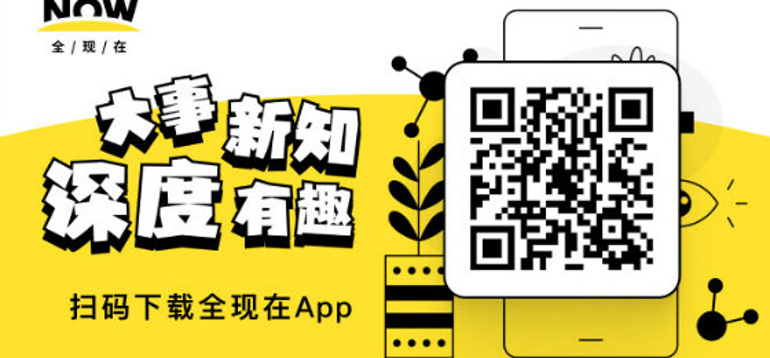
Fang Kecheng: Yes, it’s surely a challenge to make a lot of money with information projects (资讯类的项目), and in the beginning it’s definitely all about input, right?
Lu Hui: Yes, we are definitely prepared for long-term investment, and we aren’t looking for immediate profitability within a year or two. Perfect World will allow us a relatively long incubation period.
It should be said that Perfect World is not an angel investor for us, so we are not a venture-backed startup but a project incubation. That means we are now a subsidiary of Perfect World, and can be regarded as a new business unit of Perfect World. In the case of angel investment, investors may not put in additional money after the initial funds are used up. But we are similar to a new division formed within Perfect World, with a designated annual budget. That means we may not have the same freedom angel investment projects have, but the continuity of our funding is more secure.
Fang Kecheng: I see. So when you chose to sign on, were you also considering this relative long-term stability?
Lu Hui: Yes. It means greater stability for me personally and for our team. We won’t face strong pressures on profitability right away. Instead, we can pursue content better suited to our ideas and to the media logic (新闻传播的规律).
Fang Kecheng: Just now you mentioned that Perfect World hopes this new business will be profitable. But we also know that content can come with risks. I wonder how the company handles the question of risk?
Lu Hui: Yes, of course the question of risk is something they have always raised. From the company’s point of view, they naturally want to avoid such risks as much as possible. That’s why our position from the beginning is to not be a news media, but rather a youth information platform. In terms of content, we try not to become too involved in current affairs, disaster reporting, crimes or other relatively sensitive areas. What we do is still focused on topics of interest to youth.
In this process we are constantly adjusting and balancing risks. Fortunately, the company offers us a high degree of freedom and basically does not interfere with our content.
Fang Kecheng: Does the company worry about not having a license to publish original news content (新闻资质)?
Lu Hui: They do worry. We also explained the situation to the company at the beginning. Of course, we can’t just wait for the problem to be resolved. We know that most of the new media projects on the market now are unlicensed (没有牌照的), which is a common problem we all face and is always a sword hanging over our heads.
In a messy information environment, the demand for original and high-quality information is on the rise.
Fang Kecheng: As a media professional with deep experience in the field, what drew you to join “All Now”? What do you hope to achieve here?
Lu Hui: Actually, my thinking wasn’t too complicated. One day I just realized looking all around that there was nothing particularly good on the news and information app front. Traditional media haven’t really done a good job [in this area], and the major internet portals that we habitually used in the past, like Netease, Tencent and Phoenix – what about their news clients? I found that they were all Toutiao-ified [imitating the Toutiao app, which generates tailored news feeds for users based on algorithm models], or you could say they were “self-mediazed” (自媒体化), meaning that they adopt a lot of content from self-publishing media. In fact, traditional media content has now become drowned out in the sea of self-published media.
Self-published media don’t follow the reporting norms of traditional media. They often stir up emotions, and they don’t separate facts from opinions. Open up these news apps and you find that every single day they contain sensational and vulgar content. In fact, this owes to the influence of Toutiao, which led the transformation in this direction.
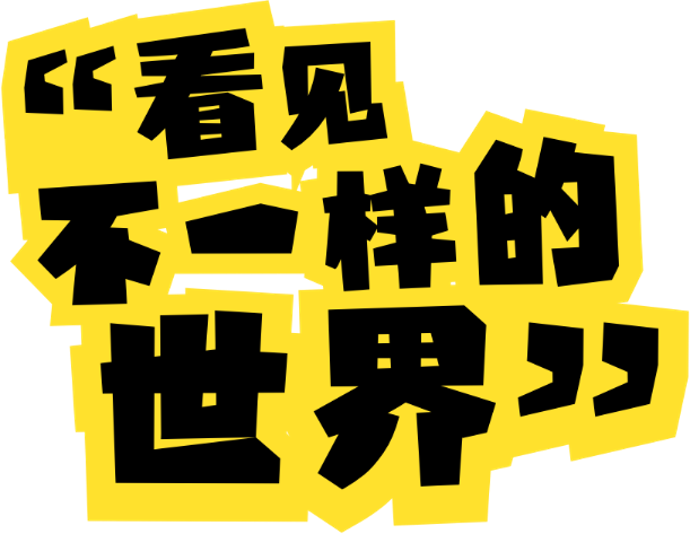
The emergence of Toutiao has led to a broad change in the media ecology (媒体生态), and this has been a troubling turn of events for people who have relatively high expectations in terms of information quality. It’s not just me. My peers in the media, and those who are more culturally informed, all generally feel that the whole field of news and information is in decline.
Of course, this decline is not entirely a bad thing. It allows more people to access information more easily. But those who do have higher expectations and want quality information just can’t find a suitable news and information app on the market.
Fang Kecheng: That’s a very interesting observation. Do you think this change in the media ecology is unprecedented?
Lu Hui: Yes. More than 10 years ago, when portals were dominant, they actually did not constitute a major blow to traditional media. In one sense, even, portals helped traditional media expand their influence. For example, the Southern Metropolis Daily or The Beijing News, which were local media, were able to gain national influence through portals like Sina. [Editor’s Note: Internet portals, which had national reach, typically republished content from Chinese newspapers and magazines, but were prohibited from conducting news reporting themselves.]
The launch of Toutiao, together with WeChat public accounts, made a dent in the traditional media, suddenly stripping traditional media of their authority. You basically don’t see publications like Southern Weekly, Southern Metropolis Daily or The Beijing News setting the agenda anymore.
Now, the traditional media themselves moving in the direction of self-media, and they are creating more and more content in the self-publishing style. So you’ll find that traditional media are becoming increasingly indistinguishable from self-published media. On the whole, you can say that there is quite a strong trend of anti-intellectualism in the information landscape.
Fang Kecheng: Yes, there seems to be less and less quality content.
Lu Hui: I think more and more users, especially more discriminating users (高端用户), are dissatisfied with this situation, and even have a strong sense of disgust. Even at the lower end of the market, with information becoming more and more abundant, more users are now demanding more quality information. With the massive decline of traditional media, however, in-depth and professional information is growing ever scarcer.
One of the trends we’ve noticed over the years is that the demand for in-depth articles is now on the rise on WeChat public accounts. Fragmented information tends to be ignored in this WeChat public account market, while reader demand for more in-depth information increases. So, that demand drove my original intention to make “All Now” happen at the time. In the game of publishing quality and original information, there are virtually no players.
Fang Kecheng: So, when Perfect World sought you out, you had this idea in mind to define the direction “All Now” would take.
Lu Hui: That’s right. Once I pitched it, it was approved by Perfect World. At the time, we proposed that our target users would be young people who were inquisitive and curious about the world, who were tired of fragmented information and tired of short videos. So, I positioned “All Now” from the beginning to serve a niche market for quality, serving a small group of people.
Fang Kecheng: Do you have an estimate of how many people there are for such a market?
Lu Hui: It can be estimated, but not very accurately. I would say about 10 million or so. If you think about it, Toutiao has about 800 million users, and we may be able to reach one to two percent of that.
Fang Kecheng: Is it possible for you to reveal your reach right now?
Lu Hui: We are still very far from that. We have only a few hundred thousand users. About ten million is the ultimate goal we hope to reach.
Fang Kecheng: Is Perfect World likely to find this figure too small?
Lu Hui: No. Actually, it is not all about the number of users, but also the commercial value of users and about [audience] precision. For example, there is some niche content in vertical fields (垂直领域的小众内容) with relatively strong commercial value.
The concerns of young people are different from those a decade ago.
Fang Kecheng: How do you break into the business of providing original and high-quality information for young people?
Lu Hui: At the start, we wanted to focus on the topic of “globalization,” so we built a relatively large team for international news. But then the situation changed drastically, along with the Covid-19 pandemic and an intensified anti-globalization sentiment around the world, including calls for the decoupling of China and the United States and so on.
So afterward we adjusted our approach and started to focus only on “Generation Z,” what we call the post-95 and post-00 groups, and the issues they face. We found that this generation of young people is a very anxious generation. They live in the so-called “involution era” (内卷时代). [Editor’s Note: This is a reference to the idea that young people today work in a highly competitive environment with few prospects for real advancement, and become more and more exhausted in the process.]. While the post-80s and even the post-90s youth grew up in a period of rapid economic development and accelerating global integration, Generation Z is living in an era of slowing growth and even stagnation. Globalization is receding, and isolationism is becoming more prevalent, which makes young people feel greater competitive pressure and see fewer prospects for upward mobility.
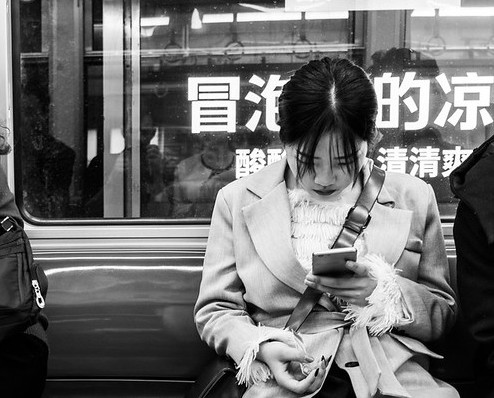
We can observe the trajectory of mentality among young people today. In the beginning, young people remained idealistic. Then they turned to the concept of “little happiness” (小确幸), [the idea that contentment could be found in the small things], but they found that even “little happiness” could not be sustained. So then they tried to become “Buddha-like” (佛系), [living with a sense of indifference]. Once they gave up being “Buddha-like,” then became “sang” (丧), [which describes a state of discouragement]. Finally, as even the culture of “sang” no longer seems to work, they have turned to the idea of “lying flat” (躺平) and “freeganism” (不消费主义).
This is a downward spiral. And so our content is aimed at the anxiety that youth feel in the era of “involution,” making a record of their demands and the real life conditions that they face. You could say this is our new character design.
Fang Kecheng: Specifically, how do you choose topics concerning this concept?
Lu Hui: I found that some of the topics that we paid most attention to as media people 10 or 15 years ago, like disaster reporting, mining accidents, explosions, fires, earthquakes, cases of injustice and so on, are not of particular concern to young people today. Young people pay more attention now to a number of other topics, such as gender and questions of fairness. You people today, I think, are more sensitive to fairness than our generation. Related to these issues, there are some topics like the “996” work culture [the idea that workers should expect to work from 9AM to 9PM six days a week]. In addition, there are new lifestyle choices such as freeganism. We’ve increased our coverage of these areas and found that the click rates were higher.
Fang Kecheng: How do you personally know what young people are thinking and what they care about?
Lu Hui: I still have a pretty youthful mentality. In fact, I’m a pretty typical anime, comics and games (ACG) geek, and in that sense I’m not quite like other traditional media people who like to get together for drinks. I think we can no longer use the approach of enlightenment (启蒙) or instruction (教导) to communicate with young people. The times have changed. Young people these days are actually very conscious, and they have many sources of information. Their capacity to act is really strong too. They don’t need or want someone to enlighten them in a condescending way.
On the other hand, though, there is a problem of “youth worship” (青年崇拜), exemplified by Bilibili’s [May 2020] viral video “Rising Waves” (后浪), which praised everything about young people today. This isn’t right either. My approach is to try to give everyone more room to explore freely. You shouldn’t tie your hands with old experiences from the newspaper era already past, thinking that you know best.
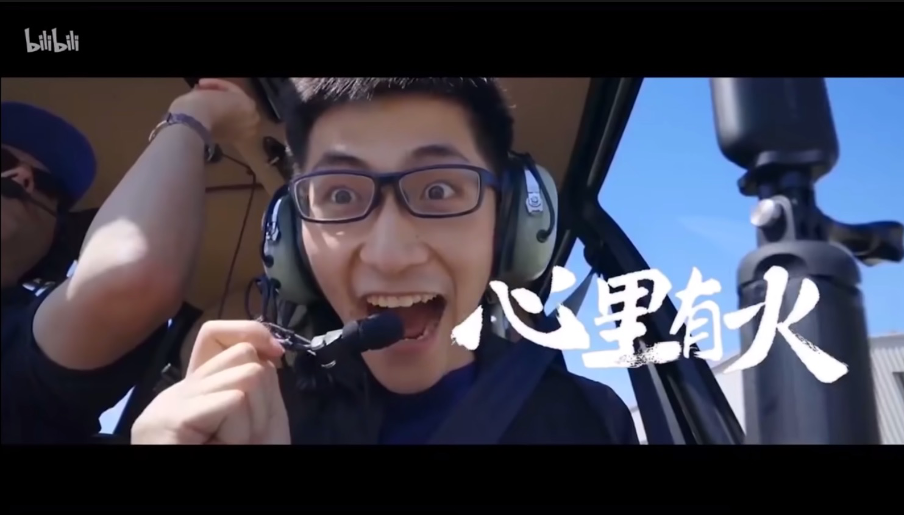
Fang Kecheng: How much of the traditional media experience is still worth inheriting, and what should be discarded?
Lu Hui: I think that some things at the core of journalistic professionalism, such as truth-seeking and balance, are definitely still necessary. However, many of the formal rules, like rules of style and writing, require new exploration and breakthrough in this generation. This process of exploration and breakthrough, though, hasn’t yet resulted in a consensus on rules, so right now things seem really chaotic.
Fang Kecheng: Like what kind of breakthroughs? Do you means things like allowing for a first-person narrative in writing and more self-expression?
Lu Hui: I think so. Some self-published articles are hard to classify according to the traditional news style, but they contain good exclusive reporting (独家报道). Our colleagues often feel a sense of frustration, that the pieces they really invest themselves in writing aren’t read by users at all, while some of the stuff they write quite casually gets higher click rates. To put it plainly, a consensus and rules have not yet formed.
Perhaps articles can abandon some of the boundaries about objectivity and start from the writer’s own experience. The writer has to become an observer, and the observer has to take a stand. It can’t be the purely objective and impartial (客观公正) stance that we used to talk about. In fact, that is not necessarily being objective and impartial either.
Fang Kecheng: It’s more the pretense of objectivity and impartiality.
Lu Hui: Right. The direction of change now may be that I have my perspective, but I can explain to the users really clearly what that perspective is. The user can accept information from the perspectives of numerous observers and in the process arrive at more comprehensive information.
Kecheng Fang: I couldn’t agree more. I remember one general trend in American press circles last year was that several influential journalists left the New York Times or other reputable media outlets to write their own newsletters, and there were plenty of people who paid to subscribe. People seem to be more willing to follow an individual rather than large news organizations.
Lu Hui: The trend for media organizations is to become personalized (人格化). Institutionalized media often give people a feeling of coldness. But now readers prefer media with personality. We used to call it market positioning, but now we refer to it as “character development” (人设). Each WeChat public account needs to have its own personality.
Fang Kecheng: What kind of content is most popular among your readers right now?
Lu Hui: Looking at the data, the more upbeat articles, like the “Internet Surfers Weekly Topic Handbook,” which is a collection of the past week’s hot topics and new ideas on the internet. This column has the most clicks. So I think users are sometimes conflicted. On the one hand, they want in-depth stuff, and on the other hand they click on more fragmented and entertaining stuff. But I think it’s okay. We want to provide both kinds of content. In fact, a person can be more refined in their spiritual pursuits, and want to read more philosophy books, but also watch variety shows, funny short videos and so on. These two needs are symbiotic.
Expanding brand influence with the help of external platforms
Fang Kecheng: What is the internal structure of the “All Now” team and how does it work? Is it very different from traditional media?
Lu Hui: In terms of content production, the atmosphere is still relatively similar to that of traditional media. We are divided organizationally into five sections according to content: international, finance, culture and entertainment, city, and technology. In addition to the content team, of course, we also have a relatively strong technical team and product team.
Fang Kecheng: I see. So is there deeper integration between the technical team and the content team?
Lu Hui: To be honest, we are still relatively separate and have not integrated extensively yet. However, we are experimenting with ideas such as introducing automated writing, and later we may also add more interactive content as well as community-based content.
Fang Kecheng: Those sound quite promising. Though, as far as I know, automated writing solutions can still only write short messages that are more structured.
Lu Hui: Yes, they are relatively simple articles, but they can complement our fully original content at present. Right now we don’t have a lot of information. While we do have an app, it’s more like a larger public account, so automated writing could help us supplement in terms of volume.
Fang Kecheng: You put out content on a lot of platforms. For you which platforms are most important right now? Is it still the most important to have your own app?
Lu Hui: Yeah, we are definitely still focusing on our own app, but its growth is still relatively slow. Our content is distinctive, but in terms of functionality what we are doing is providing articles for reading. The next step will be to add new features, but at this stage, it’s still purely articles. For this reason, user growth for our app has not been very rapid, and we need to use external platforms to expand our brand influence first.
Among external platforms, the one we prioritize the most by far is still WeChat and our public accounts there. We find that it still has the highest commercial value. Although our readership is not huge, an article does well if it is read more than 10,000 times. When you compare other platforms it’s clear that a read on a WeChat public account has the greatest impact.
On the audio side we’re not producing a lot in terms of quantity right now, but there’s a lot of growth. For example, we are growing quite well on the “Himalaya” audio app, and are gradually becoming recognized. The audio medium might appeal to young people more, the popularity of “Clubhouse” being a prime example.
Fang Kecheng: Audio is very personalized.
Lu Hui: Yeah, we will progressively strengthen our investment in audio and video.
Fang Kecheng: I take it you don’t have any plans right now to expand commercially?
Lu Hui: That’s right. When I set up the team at the beginning I didn’t set up any sales positions. And now I am basically sitting at home, and many people are reaching out to us to invest. They were probably drawn to our tone and our growth potential, which makes them willing to take the initiative in coming to us. Soon we’ll begin to set up a commercial team and start to bring in some revenue, but it is unlikely that we will be able to turn a profit right away in the short term.

Fang Kecheng

